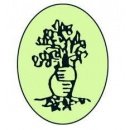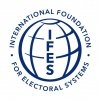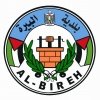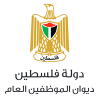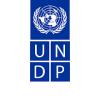Policies regulating agricultural inputs in the West Bank doc...

Developing Equitable Agricultural Production and Market Systems for Resilience Economic Development in the occupied Palestinian territory
Terms of Reference
Policies regulating agricultural inputs in the West Bank documentary
Background & Introduction:
In 2015, drawing upon its demonstrable experience in the agricultural sector, both globally and within the occupied Palestinian territory (oPt), Oxfam developed a program titled “Developing Equitable Agricultural Production and Market Systems for Resilient Economic Development in the occupied Palestinian territory” with the aim to contribute to resilient and equitable agricultural growth benefiting small-scale women and men producers in the opt Its specific objective is to increase the resilience and income of small-scale women and men producers through improved production and market systems in the West Bank, including East Jerusalem, and the Gaza Strip. Four inter-related outcomes will be targeted: (1) Small-scale agricultural farming systems are more productive, sustainable, and responsive to market demand in the selected commodity value chains, through a market system approach. (2) Market systems in selected VCs are efficient, transparent, inclusive and rewarding for women and men small-scale producers. (3) Enabling policies and market regulations are more inclusive and better promote the interests of small-scale producers; and, GoI violations of IHL and IHRL are challenged. (4) Local partners and relevant sector organizations can practice market systems approach for pro-poor and resilient agriculture development.
CONTEXT AND BACKGROUND
The majority of agricultural inputs are directly imported from manufacturers abroad, or are bought from Israeli agents of these companies or Israeli manufacturers themselves. Palestinian suppliers then distribute to their own points of sale throughout the West Bank, or sell to independent traders. Most Palestinian farmers buy inputs from these local stores, although many also have access to input supply stores in Israeli settlements, especially in the Jordan Valley area.
Palestinian suppliers importing directly or purchasing from an Israeli agent are required to obtain permits from both the Palestinian Authority (Ministry of National Economy and Agriculture) and the Israeli Civil Administration. Once the products have reached the supplier in the West Bank, the Palestinian Authority is responsible for their inspection and certification, ensuring that labels and instructions in Arabic are in place and the product has received an official stamp.
Due to the porous nature of the Palestinian market, the lack of monitoring and enforcement of laws, and the complex geopolitical environment of Israel and Palestine, there is a considerable black market for purchase and sale of fertilizers and pesticides. A number of different types of products are sold in the black market:
- dual-usage products that are not forbidden in Israel or Israeli settlements;
- products that have been banned by Israel and recalled in the Israeli market; instead of being disposed of, these products are sold in the black market to Palestinians;
- products that are globally banned and are smuggled into Israel;
- certain inputs that are allowed in Israel and not dual-usage, but are not permitted by the Palestinian Authority.
The black market is accessed through local traders that may also run registered stores selling legal products or through individuals with access to these products (i.e. those with Israeli nationality – Palestinians or Jewish Israelis). Although statistics on the amount of smuggled inputs in the market are not available, the MoA noted that suppliers and traders that they have met with estimate that smuggled and cheated inputs account for 60% of inputs in the Palestinian market.
The Palestinian Farmers’ Union (PFU) contracted ABC Consulting to conduct a research study on the challenges and barriers in accessing and using agricultural inputs in the West Bank with a specific focus on fertilizers and pesticides/herbicides as part of the project “Developing Equitable Agricultural Production and Market Systems for Resilient Economic Development in the occupied Palestinian territory” implemented by Oxfam, PFU and other partners, and funded by the Swedish International Development Agency (SIDA).
This research worked on the revision of current in-place policies regulating the use and trade of agricultural inputs, with special focus on chemicals and pesticides. Identified the role of different PA bodies in regulating, including monitoring and supervising the agricultural inputs supply chain in the West Bank, identify gaps between policies and regulations. In addition to that the research highlighted the main impediments to small scale producers’ ability to access high quality agricultural inputs focusing on fertilisers and chemicals. It also analysed the enforcement mechanism and the effect and cost of lack of enforcement of policies on the current inputs supply chain, including financially on the producers and the wellbeing of consumers. The research highlighted main issues and gaps within the current supply chain, in relation to law enforcement (such as monitoring or lack thereof over the use, smuggled/cheated inputs and their sales of these inputs) and main constraints affecting the supply chain in relation to the Government of Israel policies, especially those related to dual-use policy.
PURPOSE OF THE DOCUMENTARY
The documentary will help inform stakeholders about the impact of lack of enforcement of policies and regulations on the development of the fresh fruit and vegetable sector in the West Bank, as well as present some policy recommendation to the relevant PA bodies.
DOCUMENTARY OBJECTIVES
- Captures the research key findings, challenges as well as recommendations.
- Raise the awareness of relevant ministries on the dire necessity to regulate agricultural inputs.
- Educate farmers on bad health and cost impact of non-allowed chemicals and pesticides
- High cost of inputs for farmers.
- Lack of regular monitoring by PA of Sold and used inputs and residue on produce.
- Slow or non-existent returns for taxes.
- Cheated or faked inputs in the local market.
- Products banned (Israeli and international) for Palestinian use (dual-usage or Palestinian-banned) smuggled into the West Bank through Israel.
- Highlight any investment opportunities or and initiatives for Palestinian private sector to manufacture fertilizers and pesticides in Palestine.
TARGETED AUDIENCE:
-
- Primary: PA, mainly Ministry of Agriculture, Ministry of Health, Environment Commission, Ministry of Economy that are the responsible entities for regulating the inputs sub-sector, Palestinian customs, consumers protection association, other relevant ministries, national policy makers and stakeholders.
- Final Beneficiaries: The direct beneficiaries of the action will be the public and vulnerable farmers who will benefit from the action through raising their awareness on the importance of legal purchase of inputs as Labels on regulated products are fully translated to Arabic and full-time agricultural engineers are employed in registered, legal trade stores to provide additional advice and guidance.
EXPECTED OUTPUT
The main outcome of this work is to direct, edit and produces a 2-3 minute documentary film reflecting the finding of the above mentioned research. The documentary will include footage of communities’ meetings and individual interviews with farmers (where feasible), and other relevant decision makers and stakeholders. The documentary should be suitable for public screening and posting on digital media.
DELIVERABLES
- 2 Master copies of product in high quality DVDs.
- All raw footage (unedited and without music and sub-title)
- Master copy of documentary– (Final Cut)
- Master copies with sub-title – (Final Cut)
- All versions must be suitable for - Broadcast on TV channels; - Conference presentations on large screens; - Internet and mobile internet use through platforms such as website, YouTube and Facebook.
- Web optimized version.
USE OF FINDINGS
The documentary will be utilized by PFU as a tool for advocacy and to mobilize the local community to push for change. The documentary will be broadcasted and advertised nationally for the purpose of collectively address all of the issues proposed.
METHODOLOGY
The following methodology will be applied in carrying out the documentary as outlined:
- Meetings with MOA, relevant Ministries, stakeholders, PFU and Farmers in the field to collect and record data;
- Submit a storyboard and script for the documentary to PFU for approval before filming;
- Present three draft documentary films to stakeholders at the end of the field mission and incorporation of comments;
- Present a complete 2- 3 minutes documentary film.
- Hand over final deliverables mentioned above to PFU of each version to PFU.
- To prepare script and narration for overall documentary;
- To compose background music for the documentary
- Capture necessary video footage
- To narrate and edit raw video footage/ photographs for producing final documentary.
TIMEFRAME
The documentary will have 15 working days to undertake the desk and field work and submit the last draft of the documentary. The draft will be reviewed by PFU staff and feedback will be provided to the consultant. The final draft should be submitted maximum 10 days after receiving feedback on the first draft.
DOCUMENTARY MANAGEMENT
The commissioning manager of the documentary will be PFU executive Director. The consultant will submit a plan including detailed methodology, storyboard and script for the documentary to PFU for approval before filming. PFU executive Director will provide necessary technical support for the development of the methodology and tools and review the documentary draft. The consultant will submit the draft to PFU Executive Director and after receiving comments on the draft will submit the final documentary as per the agreed time plan.
REQUIRED SKILLS
- Prices are valid for 30 days
-The submitted offers should be in US Dollars excluding VAT. The tendered should be able to issue Payment request in addition to deduction at source certificate (شهادة خصم مصدر) or will deduct a percentage of the final payment according to Palestinian Taxation department & laws.
- Prices include all types of expenses such as transportations, per -diem, calls,...
The remuneration is to be paid based on the following milestones:

- Acceptance: Award of a proposal does not imply acceptance of its terms and conditions. PFU reserves the option to negotiate on the final terms and conditions.
Please submit the proposal (technical & financial offer) and requested documents by email (as mentioned above) no later than 31st of August 2018, addressing to: [email protected] quoting the reference code in the subject line of your email.




